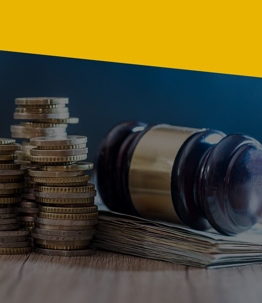Filing for Chapter 13 bankruptcy can offer a fresh financial start, but it’s essential to understand what happens after you file. Unlike Chapter 7, which involves liquidating assets to pay off debts, Chapter 13 allows you to keep your property while reorganizing and repaying your debts over time. Here's a look at the key steps and what you can expect during the process.
Immediate Effects: The Automatic Stay
As soon as you file for Chapter 13 bankruptcy, an automatic stay goes into effect. This is a court order that stops creditors from pursuing collection actions against you, including foreclosure, wage garnishment, and repossession. The automatic stay gives you breathing room to work out a repayment plan without constant pressure from creditors.
Development of a Repayment Plan
The cornerstone of Chapter 13 is the creation of a repayment plan that spans three to five years. This plan outlines how you will repay your creditors based on your income, expenses, and the types of debt you owe. Secured debts like mortgages or car loans are usually prioritized, while unsecured debts such as credit card balances may only be partially paid off or discharged.
Your lawyer will help you develop this plan, which must be approved by the bankruptcy court. Once approved, you'll make regular payments to a court-appointed trustee, who distributes the funds to your creditors.
Protecting Your Assets
One of the significant benefits of Chapter 13 is that it allows you to keep your assets, such as your home or car, provided you stay current with your repayment plan. This protection is particularly helpful if you’re behind on your mortgage or other secured loans. Chapter 13 gives you the chance to catch up on missed payments and avoid foreclosure.
Debt Discharge at the End of the Repayment Period
After successfully completing your repayment plan, the remaining eligible debts will be discharged. This means you are no longer legally obligated to repay those debts, giving you a clean financial slate. Certain debts, like student loans or recent tax obligations, may not be discharged, but Chapter 13 provides a manageable way to deal with them over time.
Rebuilding Your Credit
While filing for bankruptcy can initially lower your credit score, Chapter 13 gives you the opportunity to rebuild your credit during the repayment period. By making timely payments under the court-approved plan, you demonstrate financial responsibility, which can improve your credit score over time.
Conclusion
Filing for Chapter 13 bankruptcy can be a practical solution for individuals struggling with overwhelming debt. It offers the protection of an automatic stay, a structured repayment plan, and the ability to retain your assets. If you're considering Chapter 13, consulting with a knowledgeable bankruptcy attorney can help you navigate the process and regain control of your financial future.





